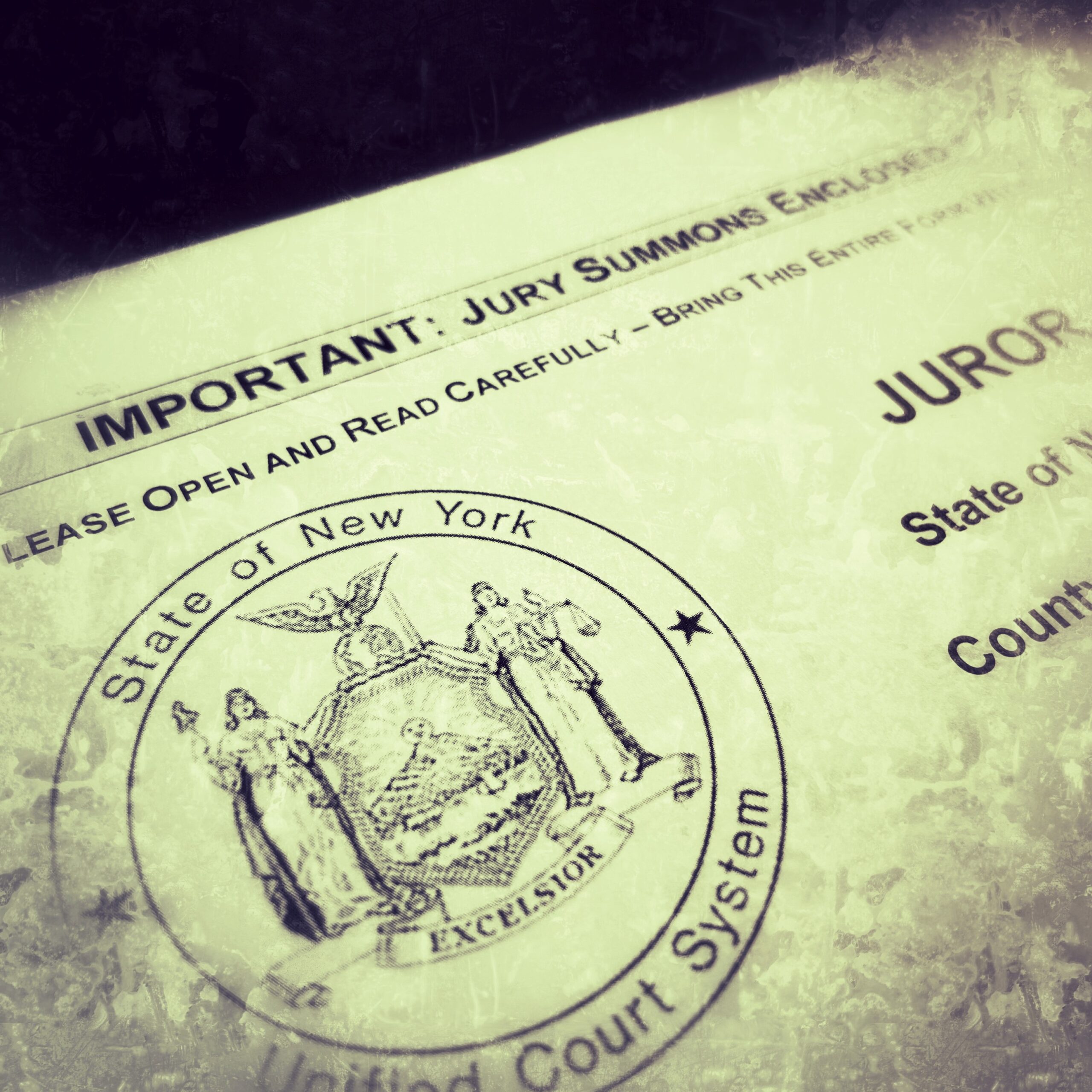Voir Dire: The Process of Selecting a Jury in New York
In New York, lawyers can question prospective jurors to determine their qualification for service. This questioning process, called voir dire, is important to the criminal defendant. Voir dire is essential to the selection of a fair and impartial jury. Additionally, it can also help set the stage for a successful defense.
How Does Voir Dire Work?
After arriving for jury duty, potential jurors are randomly selected to possibly sit on a jury. As a next step, the judge will ask certain questions. Thereafter, attorneys are permitted to give a summary of the case and ask jurors questions – the voir dire. After such questioning, attorneys can request jurors be removed for cause. There are also peremptory challenges, where an attorney does not have to give a reason for asking for that juror’s removal.
In essence, voir dire is to determine if a juror can be fair and impartial. For example, voir dire can ascertain if a juror has a bias, prejudice, or some other reason why that person can’t be fair or impartial. Where a criminal defendant’s freedom is on the line, routing out such bias is of ultimate importance.
What is a Fair Juror?
In determining whether a juror is fair and impartial, there are certain things a judge and the lawyers will consider.
- Can they accept and apply the applicable laws?
- Do they have a bias or prejudice against or in favor of a party or witness?
- Will the juror make any judgments based on a person’s race, color, national origin, ancestry, gender, gender identity or expression, religion, religious practice, age, disability, or sexual orientation?
- Do they allow stereotypes or attitudes to affect their judgments?
- Can they only use the evidence presented in reaching a verdict?
- Will they only make their judgment after hearing all the evidence and law?
- Can they render a verdict consistent with the evidence and law without fear, favor, bias, prejudice, or sympathy for either the People or the defendant or any witness?
What Is Asked During Voir Dire?
During voir dire, there are certain statutory requirements that must be asked of jurors. For instance, this includes whether a person is a US citizen, resident of the jurisdiction, over age 18, able to understand and communicate in English, and has no prior felony conviction. Additionally, they must have no relationship to the case or the trial participants. Moreover, a juror must be available to attend all stages of the trial as required.
Depending on the nature of the criminal case, certain voir dire questions can be asked to bring out information that may be relevant to the juror’s view of the case. An experienced lawyer knows what to ask. For example, it is often asked if a juror would view a police officer as being always truthful. In other cases, it may be relevant to ask if a juror has been a victim of a crime.
There are other areas of possible questioning. For instance, it may be necessary to determine a juror’s views about issues in the case or about witnesses who may testify. Or, if a juror is a professional in some area it may be necessary to ask if they can lay aside their professional knowledge in viewing the evidence.
References:
- Phylis Skloot Bamberger, “Jury Voir Dire in Criminal Cases,” NYSBA Journal (Oct. 2006). Available at: http://ww2.nycourts.gov/sites/default/files/document/files/2018-06/Bamberger_JuryVoirDire_CriminalCase.pdf (last accessed Feb. 23, 2022).
- James H. Gold, “Voir Dire: Questioning Prospective Jurors on Their Willingness to Follow the Law,” 60 Indiana Law Journal 163-190 (1984). Available at: http://ilj.law.indiana.edu/articles/60/60_1_Gold.pdf (last accessed Feb. 23, 2022).
Image: copyright 2022 Pappalardo & Pappalardo, LLP. All rights reserved.

